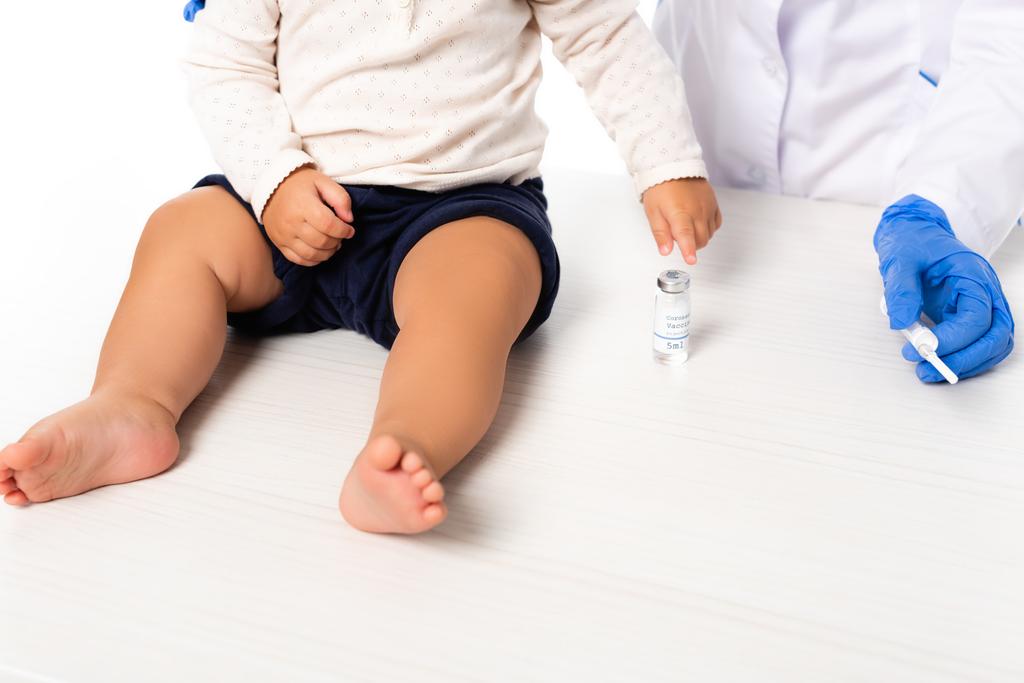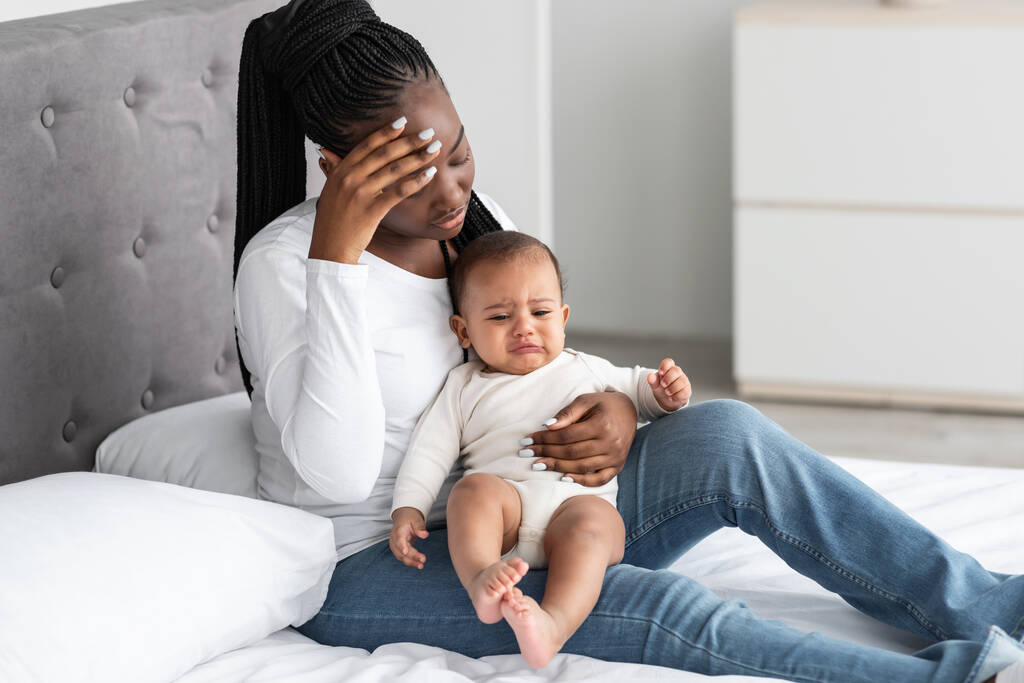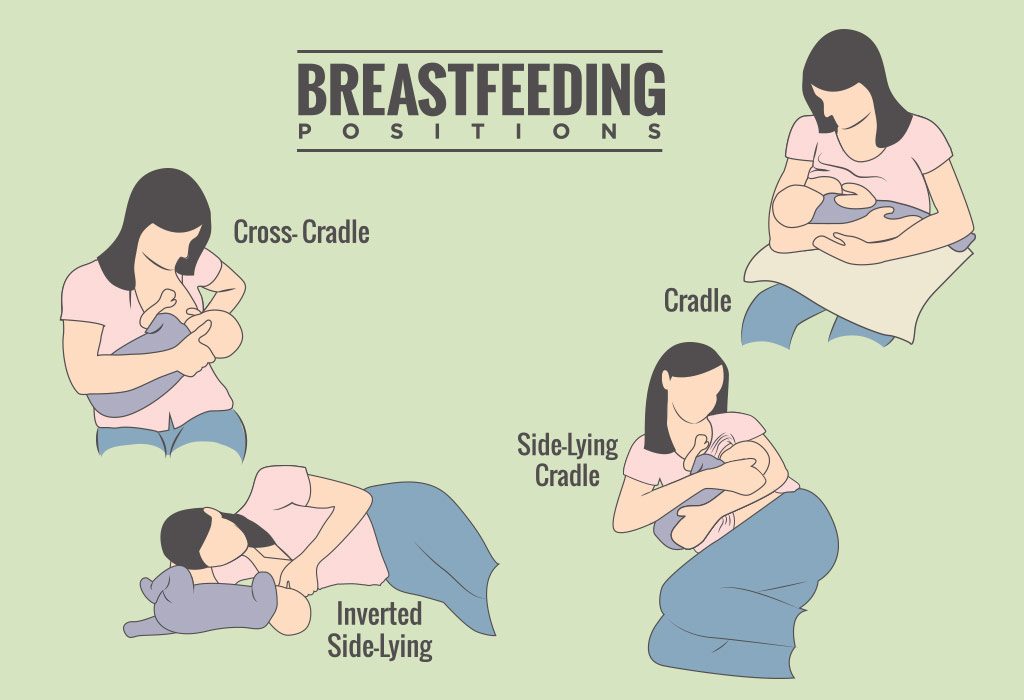Comforting Your Little One: Tips for Relieving Pain After Baby’s Vaccination
Welcoming a new baby into the world is a joyous occasion, marked by moments of tenderness and care. One such moment is when your baby receives vaccinations to protect against various illnesses. While vaccinations are crucial for your baby’s health, it’s common for little ones to experience some discomfort afterward. As a parent, you naturally want to provide comfort and relief. In this article, we’ll explore simple and effective ways to ease pain and soothe your baby after vaccinations in easy-to-understand language.
Understanding Post-Vaccination Discomfort:
Vaccinations work by stimulating the immune system to build protection against specific diseases. While these shots are essential for your baby’s well-being, they can cause temporary discomfort, including pain, redness, and swelling at the injection site. Additionally, babies might feel a bit fussier or experience mild fever in the first 24 to 48 hours after vaccinations.
1. Gentle Cuddling and Comfort:
After your baby receives vaccinations, the power of gentle cuddling cannot be overstated. Cradle your little one in your arms, providing a sense of security and warmth. Your comforting touch can go a long way in easing any anxiety or discomfort your baby may be feeling.
2. Breastfeeding or Bottle-Feeding:
For infants, breastfeeding or bottle-feeding can offer both nourishment and comfort. The act of sucking can be soothing, and the closeness to you during feeding provides a comforting environment. If you’re breastfeeding, consider offering the breast more frequently to provide extra comfort.
3. Use a Cool Compress:
To alleviate any swelling or tenderness at the injection site, you can use a cool compress. Simply take a clean, soft cloth, moisten it with cool (not cold) water, and gently apply it to the affected area. The coolness can help reduce inflammation and provide relief.
4. Dress comfortably:
Dress your baby in loose, comfortable clothing to avoid unnecessary friction on the injection site. Soft fabrics that don’t rub against the skin can contribute to your baby’s overall comfort.
5. Provide distractions:
Engaging your baby with soothing distractions can be an effective way to shift their focus from any discomfort. Sing a gentle lullaby, play soft music, or use a favorite toy to capture their attention. Sometimes, a little distraction is all it takes to ease their uneasiness.
6. Check for fever:
It’s common for babies to develop a mild fever after vaccinations. Use a digital thermometer to check your baby’s temperature. If a fever is present, consult with your healthcare provider on the appropriate measures to take. In some cases, they may recommend infant-safe fever-reducing medications.
7. Infant Pain Relievers (Under Medical Guidance):
For babies who are in significant discomfort, your healthcare provider may recommend infant pain relievers such as acetaminophen or ibuprofen. It’s crucial to follow your healthcare provider’s guidance regarding the correct dosage for your baby’s age and weight. Never give medication without consulting your healthcare provider first.
8. Keep the area clean.
Ensure that the injection site remains clean to prevent infection. Gently clean the area with mild soap and water, and avoid using irritants such as alcohol or peroxide unless specifically advised by your healthcare provider.
9. Stay Attuned to Your Baby’s Signals:
Babies communicate through their cues, and it’s essential for parents to stay attuned to their baby’s signals. If your baby seems unusually fussy, lethargic, or if you notice any concerning changes, contact your healthcare provider promptly. Trust your instincts as a parent.
10. Maintain regular feeding and sleeping patterns.
Maintaining your baby’s regular feeding and sleeping routines can provide a sense of stability and normalcy. Consistency in these routines can contribute to your baby’s overall well-being and help them recover from any post-vaccination discomfort.
When to Seek Medical Advice:
While post-vaccination discomfort is normal, there are instances when it’s crucial to seek medical advice promptly. Contact your healthcare provider if:
- Your baby experiences a high fever.
- The injection site is extremely red, swollen, or oozing.
- Your baby’s discomfort persists beyond a couple of days.
- You notice any unusual changes in your baby’s behavior or well-being.
Caring for Yourself as a Parent:
Taking care of your baby’s well-being also involves caring for yourself as a parent. Here are some tips for parental self-care:
- Lean on Support: Don’t hesitate to seek support from friends, family, or your partner. Sharing your feelings and experiences can be emotionally comforting.
- Rest When Possible: Parenthood is a journey that requires ample energy. Whenever possible, prioritize rest to recharge both your physical and emotional well-being.
- Trust Your Instincts: As a parent, you possess a unique intuition about your baby. Trust your instincts and seek guidance from your healthcare provider whenever needed.
- Celebrate Milestones: Take a moment to acknowledge and celebrate the milestones, including vaccinations, in your baby’s life. It’s a testament to your commitment to their health and well-being.
Conclusion:
The experience of your baby receiving vaccinations is a crucial step in safeguarding their health. While post-vaccination discomfort is common, the love and care you provide as a parent play a significant role in soothing your baby. From gentle cuddling to maintaining routines and seeking medical guidance when needed, your efforts contribute to your baby’s overall comfort and well-being.
Remember that each baby is unique, and what works for one may not work for another. Be patient with yourself and your little one as you navigate the post-vaccination period together. By offering comfort, staying attuned to your baby’s needs, and seeking guidance when necessary, you play a vital role in ensuring a positive and reassuring experience for your baby after vaccinations.












